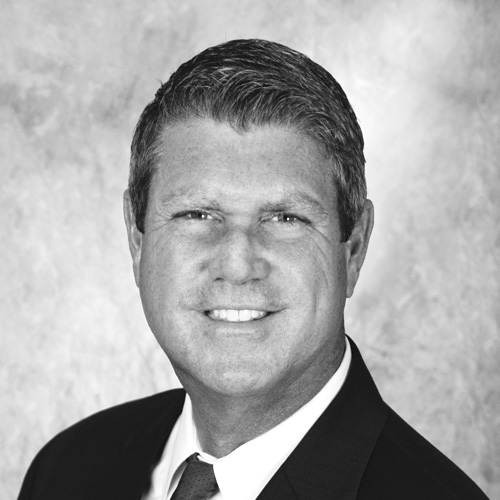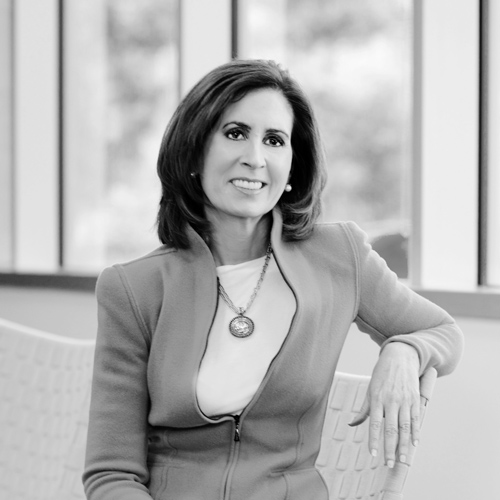Michael Capone’s career has probably been more directly influenced by his college experience than most lawyers’ careers. During his undergraduate education, he attended College of the Holy Cross, which emphasizes service to others. Then, during law school at Wake Forest University, his grandmother underwent a severe decline in her health. The combination of these two life-changing experiences created a light bulb moment when Capone realized that he wanted to serve other people through the law. This led him to litigation work for numerous healthcare clients, including CCS Medical, where he now serves as senior VP and general counsel.
CCS is one of the most recommended national home delivery providers of diabetes care supplies, prescription medication, and supplies for other chronic conditions. “Even though I’m not providing hands-on care like the many caregivers I have worked with in my prior positions, I have a chance to help patients have better outcomes,” Capone says.
What has been most striking to him since he assumed the role in summer 2016 is how driven the company is by its patient-focused approach. It’s a tone that the top management sets, and it permeates every aspect of the business. This often includes making patient needs a higher priority than some key performance indicators, such as the number of products shipped.
“The connection between clinicians and patients is easy to see, but I’ve been blown away by seeing it here between call center representatives and someone they’ve never met face-to-face,” Capone says. “There’s no mistaking how impressive that is or the benefits it has for everyone involved.”
As the healthcare environment has evolved in response to changes in structure, reimbursement, and the patient population, CCS has gone to great lengths to be adaptable and proactive. This includes developing innovative solutions, such as its Living Connected program. By leveraging advancements in wireless technology, the program uses Bluetooth- or cellular-enabled glucose meters to automatically submit test results to an online portal. Real-time monitoring and support are then provided so patients’ data can be analyzed to reveal metabolic patterns to help them manage their own care more effectively. Results can also be reported directly to a physician’s office or family members. The wireless interface may also be incorporated with other devices in the future.
Centered around the idea that knowledge is power, the program helps patients better understand testing protocols and supports overall compliance and, therefore, better control the outcomes. “Our goal is to proactively engage our patients under management by using both engagement and technology to help eliminate or slow their migration into higher acuity categories,” says CEO Rodney Carson, who has extensive experience in the use of telemedicine technology. “By focusing on the entire population, not just the high-risk individuals, we can have a profound impact on health outcomes and in reducing related healthcare spending over the intermediate and long-term time frames.”
“Even though I’m not providing hands-on care like the many caregivers I worked with in my prior positions, I have a chance to help patients have better outcomes.”
In addition to the patient and technological benefits, Living Connected has presented Capone with new legal challenges. For example, when setting up workflows, he had to answer questions such as: Who has access to the data? What can it be used for? Who is responsible for aggregating, identifying, and analyzing the information?
“It’s like a puzzle made up of various contracts, service agreements, and compliance solutions that have to be configured to meet the requirements of a legal and regulatory system that never anticipated our current technological and service capabilities,” Capone says. “One of the greatest things in my office is a whiteboard, where I spend a lot of time mapping out solutions. If something doesn’t fit the model, I literally erase what I have and go back to the drawing board.”
Capone points out that all of these efforts require a collaborative effort throughout the organization. He recalls dozens of meetings with stakeholders from shipping, patient support, IT, finance, and the clinical compliance and legal departments, among others. Those open discussions led to inventive solutions as a result of suggestions that might not have solved the puzzle, but ones that forced new perspectives and paradigms to be considered.
This all plays into his belief that the best way to tackle any problem is by tapping the wisdom of the collective. In an industry as complex as healthcare, Capone feels that it is presumptuous for anyone to believe that they can solve an issue without leveraging the knowledge and experiences that others can provide.
To support this collective wisdom, Capone and his team often refer to CCS Medicals’ mantra: “Right care. Right time. Right Place . . . At Home.” The team is dedicated to keeping the entire organization engaged and committed to its objectives. This might mean distributing hundreds of Thanksgiving turkeys to employees across the country or launching an intradepartment fitness competition. (Participants logged enough miles to walk between Roanoke, Virginia, and Clearwater, Florida, where two of the company’s distribution centers are located.)
Within the legal department, Capone encourages professional development and encourages staff to pursue goals and responsibilities outside of their formal job descriptions. After assessing strategic goals and areas of risk, he recently challenged those who report to him directly to submit approaches to reduce risks on a monthly basis as part of an initiative to drive better patient outcomes.
“There have been so many changes in healthcare, including cuts in reimbursements, that we always look for events and incentives to encourage, engage, and excite people about meeting the challenges we face,” Capone says. “While they are good for patients and our business, the energy and buzz they create in our offices is fantastic.”
Heading into the future, CCS will continue to develop innovative solutions for serving patients and for addressing the industry’s continued evolution. “There are always going to be ongoing challenges that motivate us to come up with creative solutions,” Capone says. “But those challenges present great opportunities to stretch my capabilities as well as my team’s, as well as to provide highly effective innovations. It’s all working toward the goal of providing better outcomes for the patients.”


